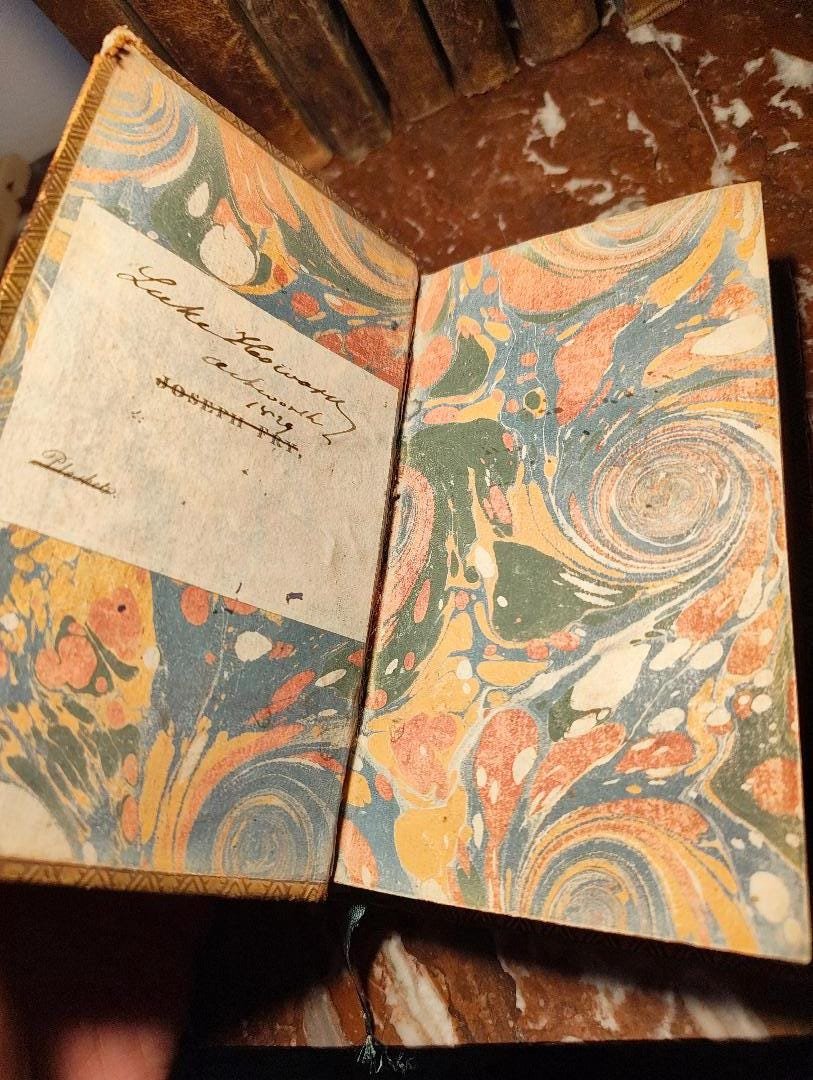 Image 1 of 8
Image 1 of 8

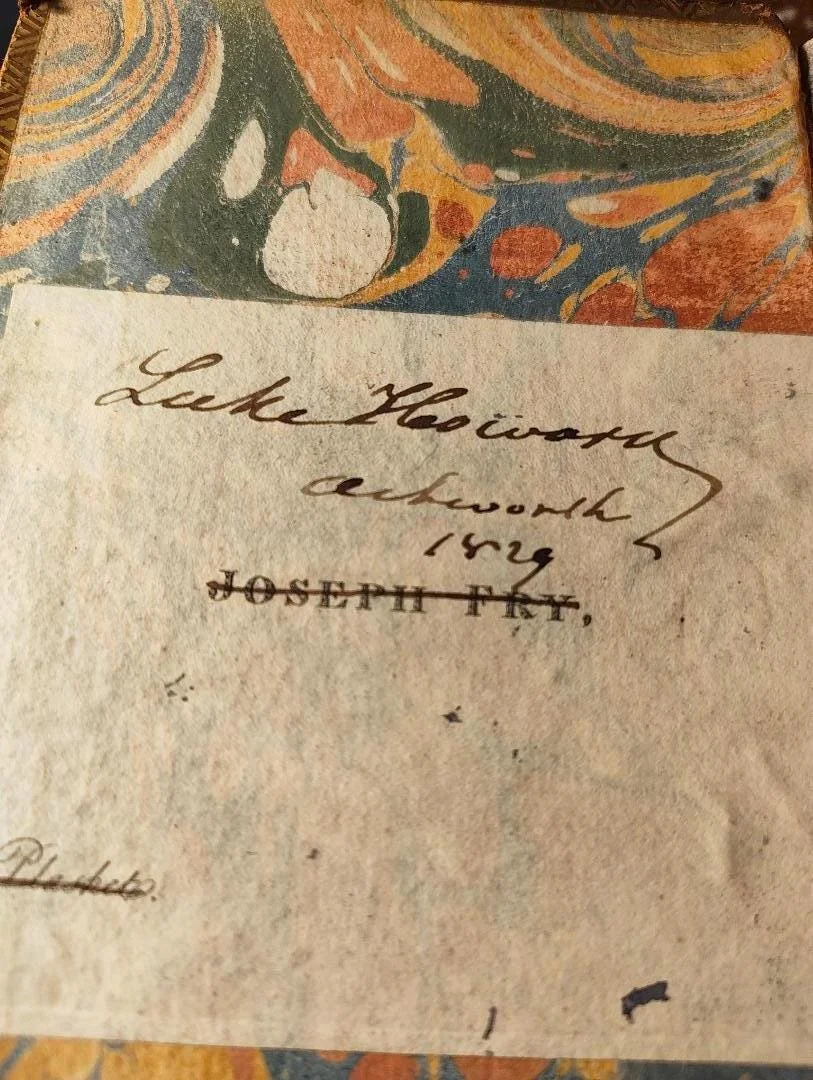 Image 2 of 8
Image 2 of 8

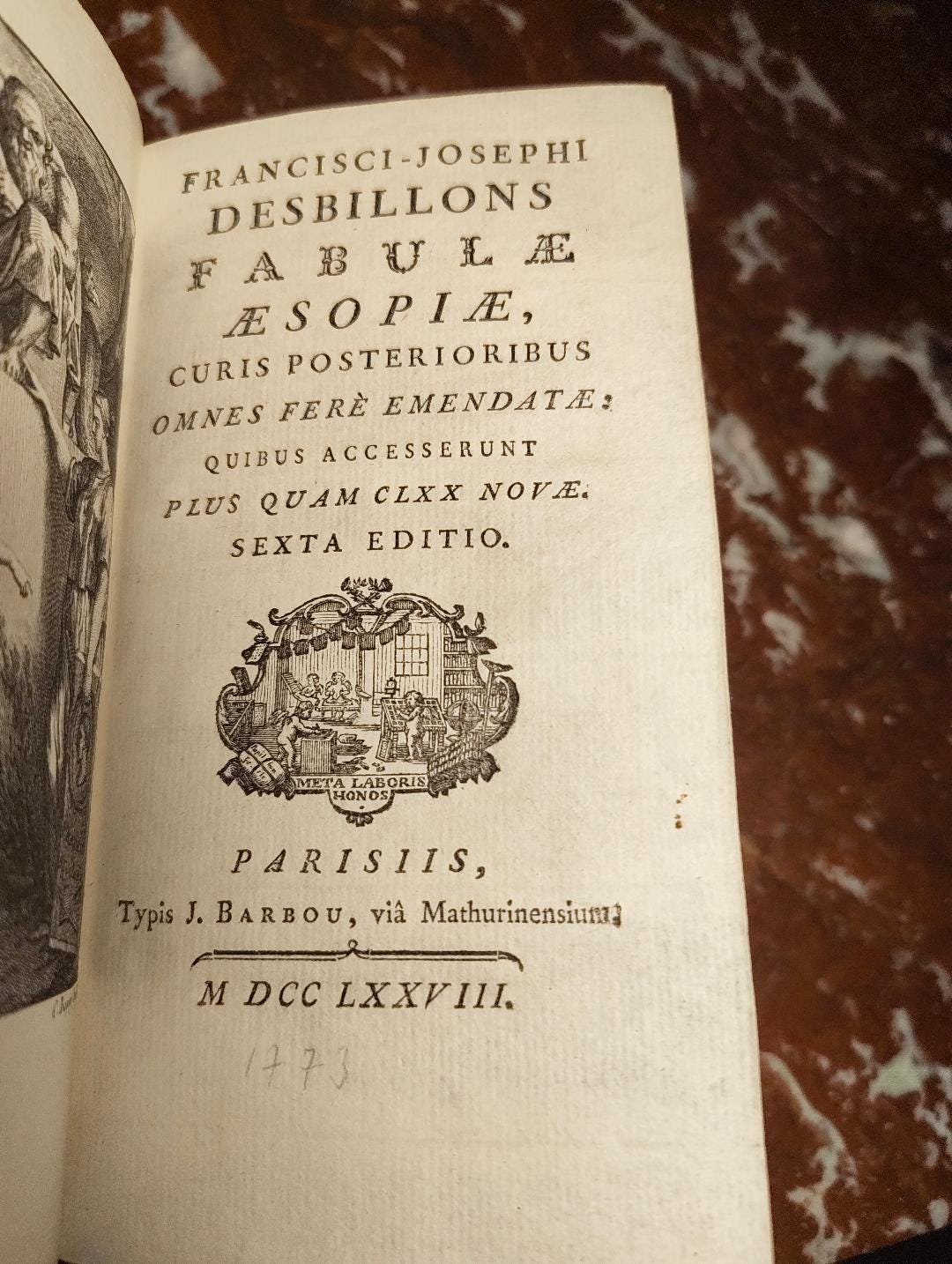 Image 3 of 8
Image 3 of 8

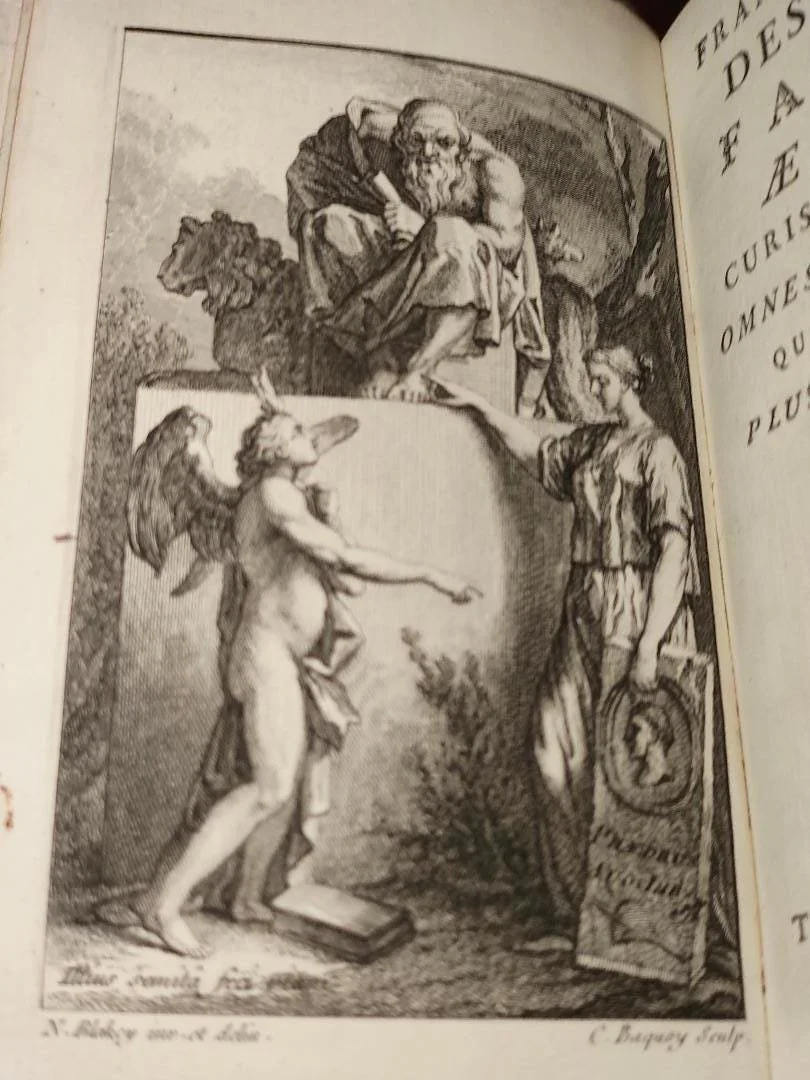 Image 4 of 8
Image 4 of 8

 Image 5 of 8
Image 5 of 8

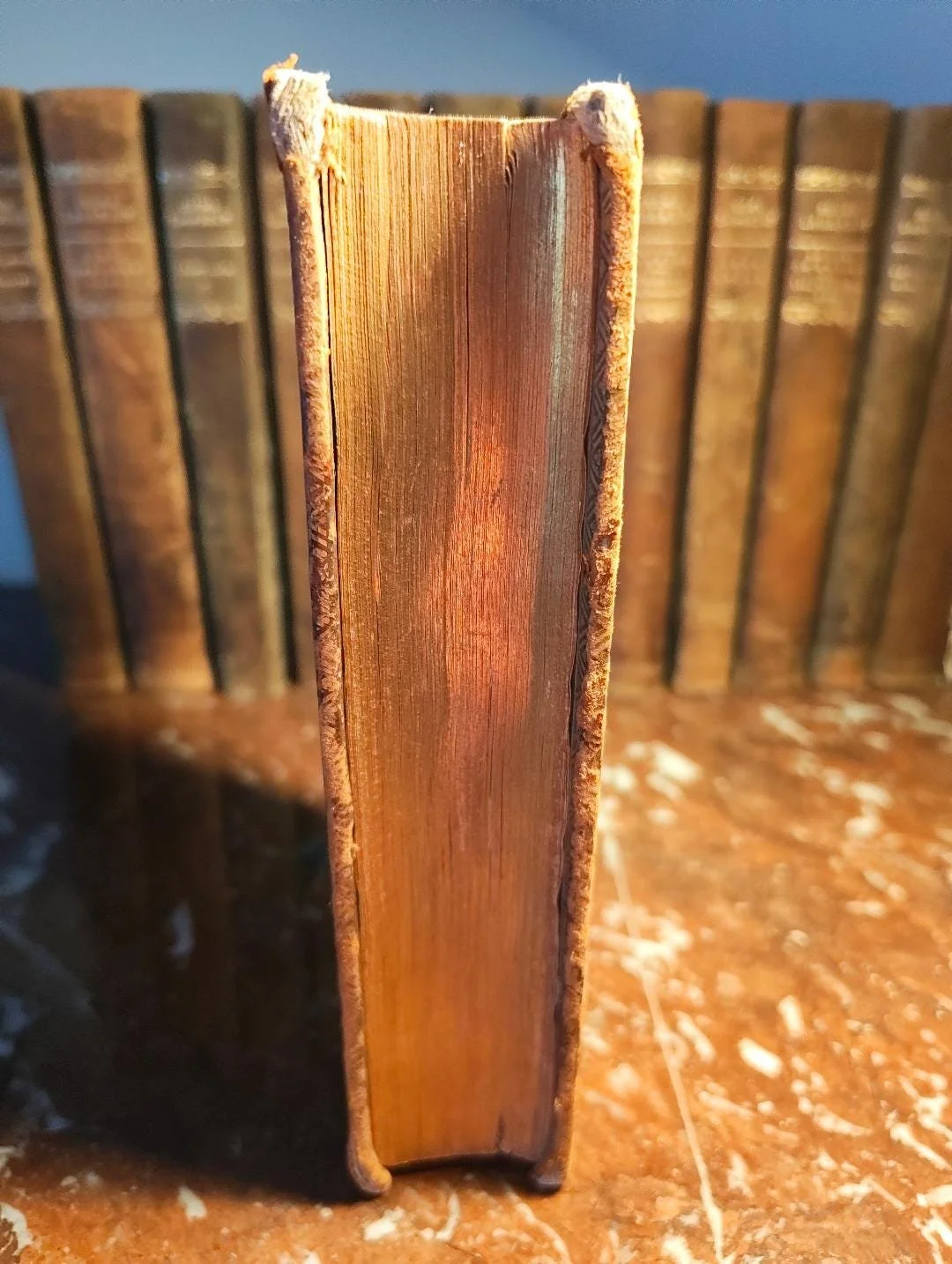 Image 6 of 8
Image 6 of 8

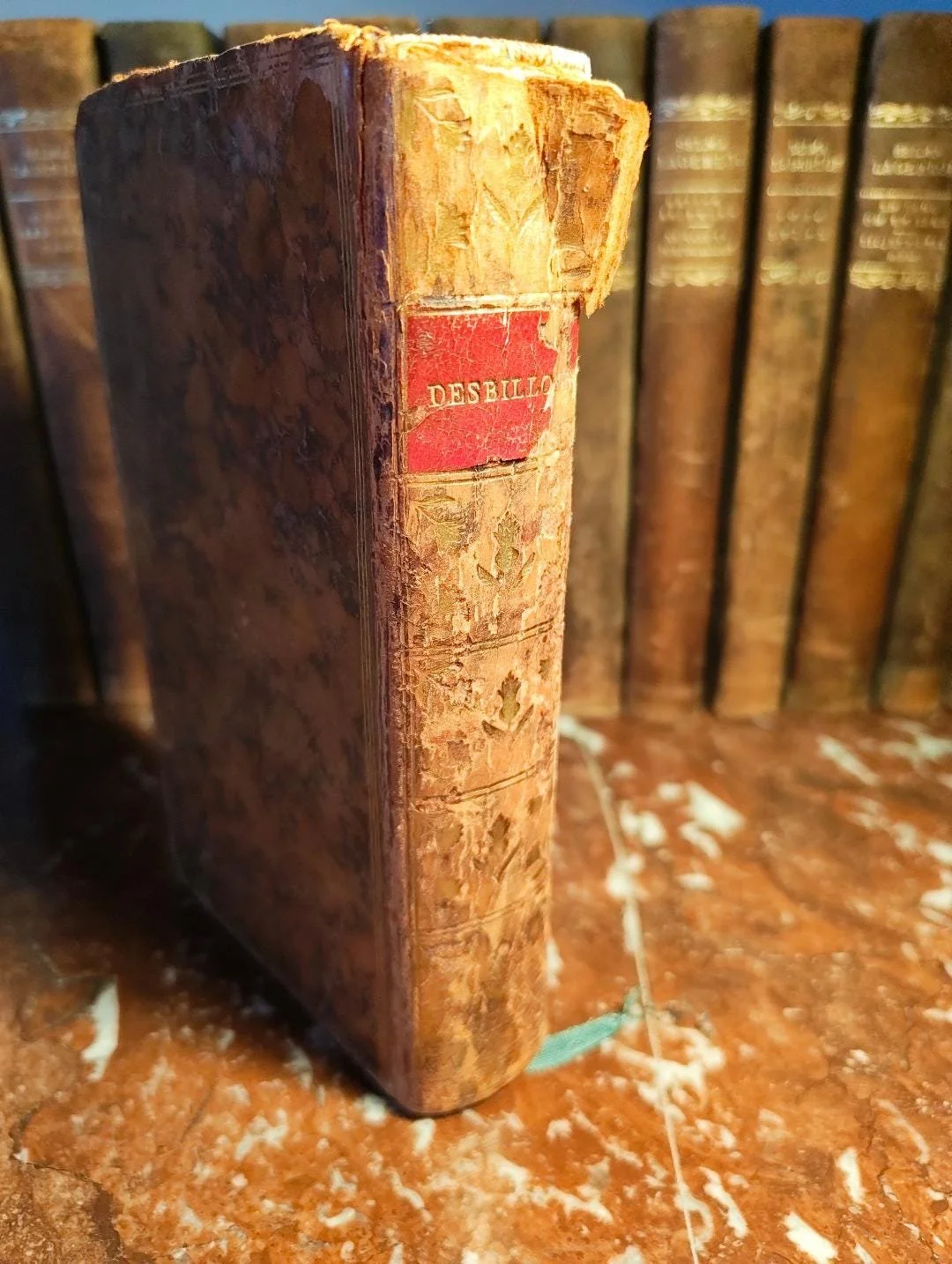 Image 7 of 8
Image 7 of 8

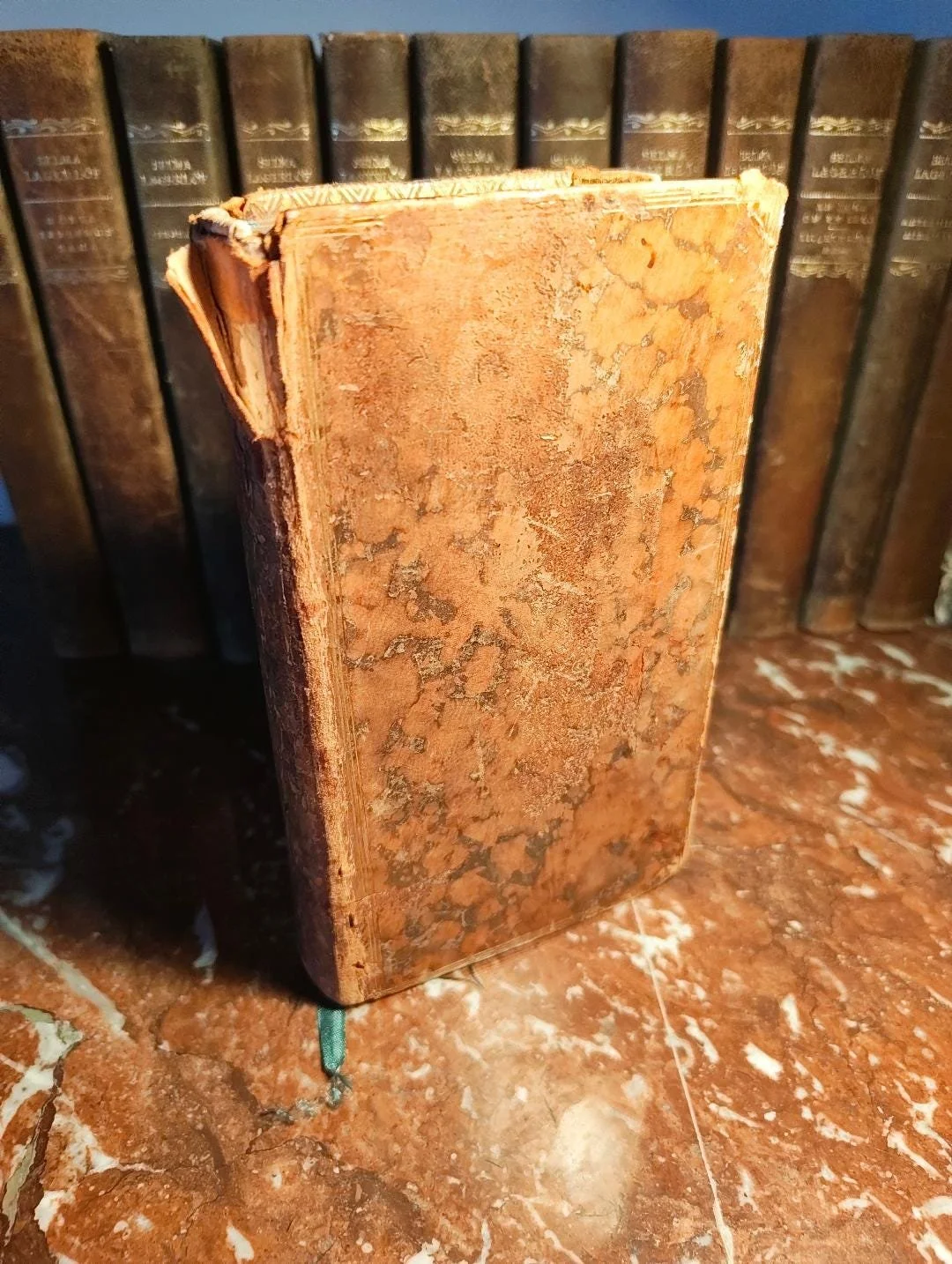 Image 8 of 8
Image 8 of 8









Fabulae Aesopiae. F.J Desbillons. Signed by Luke Howard
A rare intersection of classical literature, meteorological history, and Quaker intellectual life
This 1778 Paris printing of Fabulae Aesopiae by Franciscus Josephus Desbillons is distinguished not only by its fine production and classical contents but by a remarkable provenance that links it directly to Luke Howard, the pioneering British meteorologist whose cloud classification system transformed the study of weather. Known as the Father of Meteorology, Howard combined scientific precision with a deeply reflective Quaker sensibility, making his surviving signed material exceptionally desirable.
The contemporary marbled boards, red spine label, and gilt edges frame a text that was widely admired in eighteenth century education for its elegant Latin versifications of Aesopian fables. The engraved frontispiece and decorative typographical elements provide a visual counterpart to Desbillons refined poetic style. Yet it is the inscription on the front flyleaf that elevates this copy far beyond the usual.
Howard has signed his name, added the place Ackworth, and dated the entry 1829. Ackworth in Yorkshire was not a casual note of residence but the site of one of Howard’s most sustained periods of meteorological observation. From this rural setting he produced the data that would later underpin his study A Cycle of Eighteen Years in the Seasons of Britain, published in 1842. The present volume therefore belonged to Howard during the years in which he developed his cyclical understanding of British climate patterns, making it an artefact directly connected to his scientific practice.
Beneath the inscription lies a printed bookplate reading Joseph Fry, a name of considerable weight in eighteenth and nineteenth century Quaker history. Howard has struck through the plate, suggesting a transfer of ownership between prominent Quaker families. The connection is further enriched by the fact that Howard’s granddaughter married into the Fry family, creating a genealogical thread that mirrors the intellectual one.
The binding shows wear appropriate to a book handled across two and a half centuries, with rubbing to the boards and chipping at the spine. The text itself is clean and bright, with only gentle age toning. The overall condition is appealing, with the stability and clarity one hopes to find in a volume of this period.
As a convergence of literary culture, scientific heritage, and Quaker networks, this copy is exceptional. Very few signed Luke Howard items survive, and even fewer carry an inscription that can be tied so directly to his observational work at Ackworth. For collectors of early meteorology, provenance rich volumes, or significant eighteenth century Latin fables, this is an opportunity of rare quality
Comparison signature 1:
Luke Howard, Unpublished paper, 'Some remarks on meteorology' by Luke Howard, 1821, AP/9/14, The Royal Society Archives, London, https://makingscience.royalsociety.org/items/ap_9_14/unpublished-paper-some-remarks-on-meteorology-by-luke-howard, accessed on 13 August 2025
Comparison signature 2:
Luke Howard, Letter, from Luke Howard to Sir John Herschel, dated at Tottenham, 1 February 1841, HS/10/5, The Royal Society Archives, London, https://makingscience.royalsociety.org/items/hs_10_5/letter-from-luke-howard-to-sir-john-herschel-dated-at-tottenham, accessed on 13 August 2025
A rare intersection of classical literature, meteorological history, and Quaker intellectual life
This 1778 Paris printing of Fabulae Aesopiae by Franciscus Josephus Desbillons is distinguished not only by its fine production and classical contents but by a remarkable provenance that links it directly to Luke Howard, the pioneering British meteorologist whose cloud classification system transformed the study of weather. Known as the Father of Meteorology, Howard combined scientific precision with a deeply reflective Quaker sensibility, making his surviving signed material exceptionally desirable.
The contemporary marbled boards, red spine label, and gilt edges frame a text that was widely admired in eighteenth century education for its elegant Latin versifications of Aesopian fables. The engraved frontispiece and decorative typographical elements provide a visual counterpart to Desbillons refined poetic style. Yet it is the inscription on the front flyleaf that elevates this copy far beyond the usual.
Howard has signed his name, added the place Ackworth, and dated the entry 1829. Ackworth in Yorkshire was not a casual note of residence but the site of one of Howard’s most sustained periods of meteorological observation. From this rural setting he produced the data that would later underpin his study A Cycle of Eighteen Years in the Seasons of Britain, published in 1842. The present volume therefore belonged to Howard during the years in which he developed his cyclical understanding of British climate patterns, making it an artefact directly connected to his scientific practice.
Beneath the inscription lies a printed bookplate reading Joseph Fry, a name of considerable weight in eighteenth and nineteenth century Quaker history. Howard has struck through the plate, suggesting a transfer of ownership between prominent Quaker families. The connection is further enriched by the fact that Howard’s granddaughter married into the Fry family, creating a genealogical thread that mirrors the intellectual one.
The binding shows wear appropriate to a book handled across two and a half centuries, with rubbing to the boards and chipping at the spine. The text itself is clean and bright, with only gentle age toning. The overall condition is appealing, with the stability and clarity one hopes to find in a volume of this period.
As a convergence of literary culture, scientific heritage, and Quaker networks, this copy is exceptional. Very few signed Luke Howard items survive, and even fewer carry an inscription that can be tied so directly to his observational work at Ackworth. For collectors of early meteorology, provenance rich volumes, or significant eighteenth century Latin fables, this is an opportunity of rare quality
Comparison signature 1:
Luke Howard, Unpublished paper, 'Some remarks on meteorology' by Luke Howard, 1821, AP/9/14, The Royal Society Archives, London, https://makingscience.royalsociety.org/items/ap_9_14/unpublished-paper-some-remarks-on-meteorology-by-luke-howard, accessed on 13 August 2025
Comparison signature 2:
Luke Howard, Letter, from Luke Howard to Sir John Herschel, dated at Tottenham, 1 February 1841, HS/10/5, The Royal Society Archives, London, https://makingscience.royalsociety.org/items/hs_10_5/letter-from-luke-howard-to-sir-john-herschel-dated-at-tottenham, accessed on 13 August 2025

